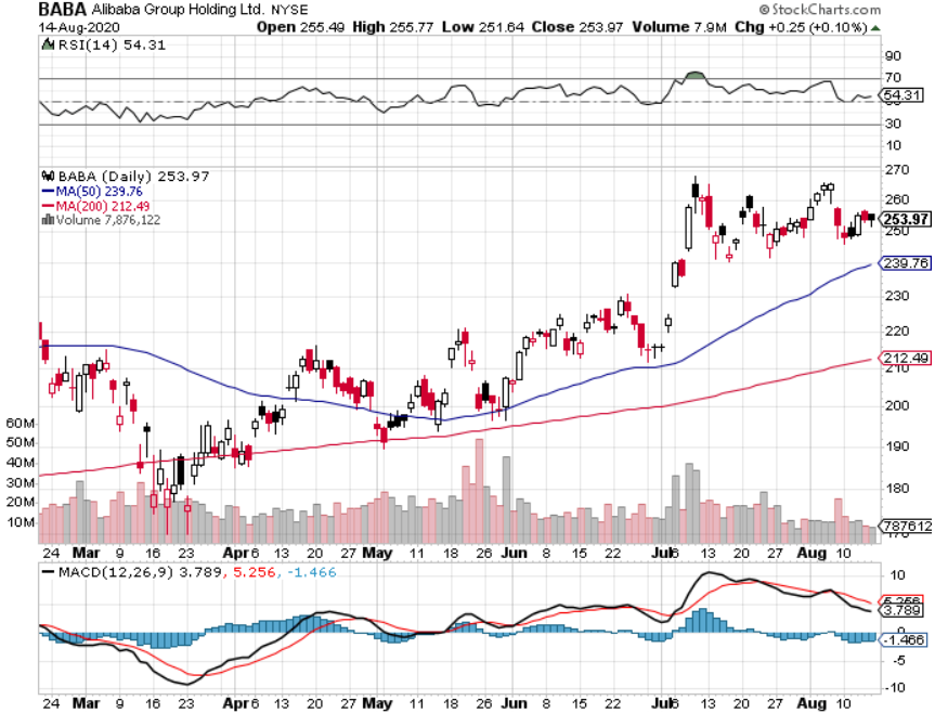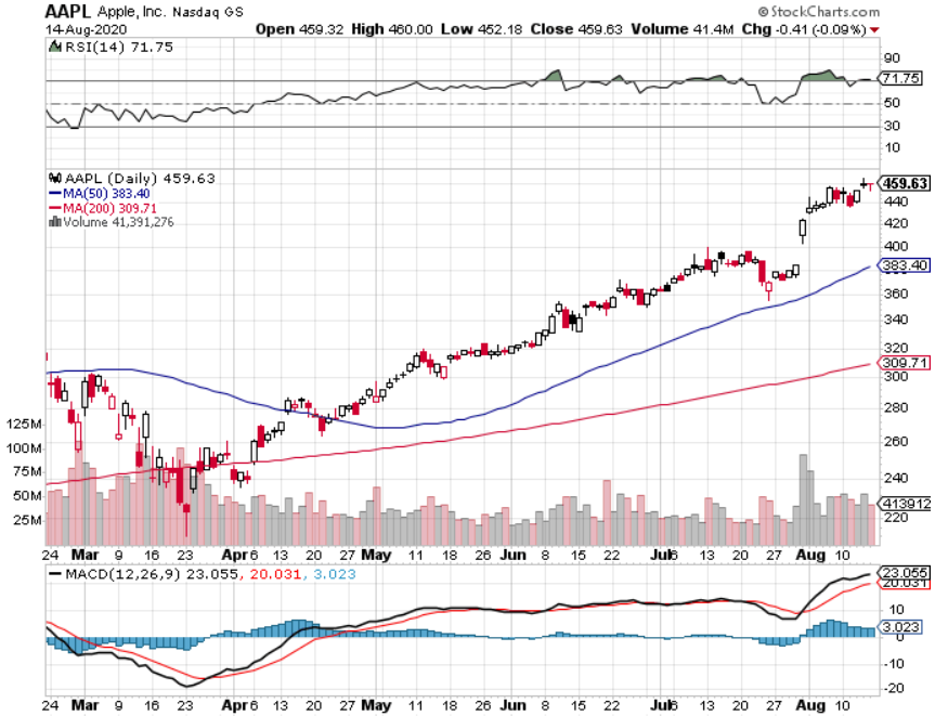U.S. Stymies the Advancement of Foreign Bad Actors
Stay away from Chinese tech companies listed on the U.S. exchanges. I wouldn’t touch them with a 10-foot pole.
Not only are these firms unscrupulous, but the U.S. administration is specifically attacking them as a cornerstone campaign strategy as we close in on the November election.
The blitzkrieg has been increasing at a rapid clip with U.S. President Donald Trump banning social media asset TikTok and chat app WeChat.
Just in the last few hours, the U.S. administration has said they are also “looking at” going after Chinese eCommerce firm Alibaba (BABA) who is the Chinese Amazon.
If the trends continue, there could be no Chinese tech companies freely extracting American revenue by this November.
Things will only get worse.
No doubt the coronavirus fiasco has exacerbated tensions between the countries with both sides dealing with a plunging economy.
The only reason we do not hear about the depths of despair going on in the Chinese economy is because the media is suppressed there.
Chinese media is tightly controlled disabling any negative news that shines an unfavorable light on the Chinese communist party.
Then there is the immoral fraud aspect of Chinese tech companies as every mainland Chinese firm wishes to go public in New York because company financials are never audited, and they are immune from any criminal liability.
This is a recipe to enable reckless Chinese management who state opaque numbers in their financials in the hope that American investors will take the bait.
Another cheater has been unearthed by Wolfpack Research who along with Muddy Waters have made it their mission to root out the bad actors.
The supposed “Netflix (NFLX) of China” Chinese streaming service iQiyi (IQ) plunged in after-hours trade in the U.S. after it announced the Securities and Exchange Commission (SEC) has launched a probe into the company.
The case revolves around iQiyi falsifying their subscription numbers which everyone knows is the key to exhibiting growth in the company.
iQiyi said the SEC is “seeking the production of certain financial and operating records dating from January 1, 2018, as well as documents related to certain acquisitions and investments that were identified in a report issued by short-seller firm Wolfpack Research in April 2020.”
Wolfpack Research has accused iQiyi of inflating 2019 revenue by around 44%.
Wolfpack also said iQiyi artificially overexaggerated expenses among other data.
The SEC probe into iQiyi comes amid rising scrutiny on U.S.-listed Chinese companies following the Luckin Coffee debacle in which they committed the same act of falsifying numbers.
This copycat crime is clearly seen as a big winner in Mainland China encouraging a slew of companies to decide on the same strategy.
The Coffee company admitted to fabricating sales numbers for 2019. The company was subsequently delisted from the Nasdaq in June.
China and its tech firms are one of the few bipartisan issues with strong support from both sides of the aisle and I can only see the temperature in the kitchen getting hotter.
The side effect of purging the Chinese tech out of the U.S. is that it bolsters the investor case for American tech.
Not that they needed help in the first place.
If the government won’t allow foreign companies to compete with Silicon Valley, then the monopolies built by the likes of Apple (AAPL), Facebook (FB), Google (GOOGL), and Amazon (AMZN) will feel protected because of the government effectively widening their moats.
One might argue that the crimes these American companies have committed are just as bad as the Chinese firms, but they get a free pass for being American.
Remember this is the age of de-globalization with national governments protecting national companies and not the other way around.
Silicon Valley companies have tried to pervert the U.S. employment situation by maneuvering around U.S. nationals by applying for the foreign HB-1 visas in droves and underpaying mostly Chinese and Indian nationals to work for the likes of Google and Facebook.
We can’t say these Silicon Valley companies are saints. They certainly are not, but that doesn’t matter in today’s climate when government, billionaires, and tech moguls are assumed as scum from the get-go.
Then there is the personal data issue that can’t be said to be much better than what the Chinese companies are doing.
The double standard is not surprising, and a heavy dose of politics has been injected into the global tech ecosphere to the detriment of cross border trade.
In the fog of war, this is why I have largely focused on U.S. software companies with subscription revenue because it offers more visibility than an unstable revenue model like Uber or Lyft.
In any case, nobody can blame the U.S. government for going this route since, after all, Facebook, Google, Amazon, and Netflix are all banned in China as well.
You don’t see U.S. tech companies trading on the Shenzhen tech index for a reason and after this monster run-up from the March nadir, it’s obvious why Chinese tech firms want to keep that funnel to U.S. investor capital clear.
This series of events that effectively coddles American big tech will insulate them from any real share weakness. The trend is your friend and I am bullish on American big tech.




